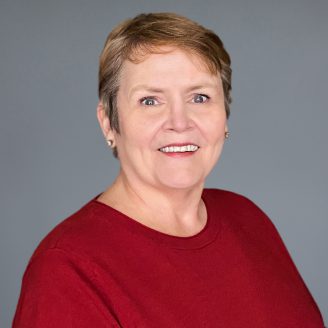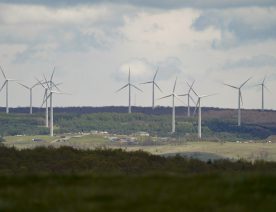
April 22, 2023
A majority of the public report personal impacts from extreme weather in the last five years, and most think climate change was the reason. Half of adults have become more concerned about climate change in the last year. In discussing climate change, many adults learn or teach new information, though fewer report changing opinions.
Seventy-one percent of the public believes climate change is happening, 12% believe climate change is not happening, and 16% are not sure, numbers that have not changed much in the last seven years of AP-NORC polling. Democrats are more likely to believe climate change is happening (91%) compared to independents (62%) and Republicans (52%).
Of those who believe climate change is happening, 63% think it is the result of human activity. Just 7% believe it is caused by natural changes in the environment, while 30% say believe it is caused by both equally. Democrats are more likely to believe climate change stems from human activity (78%) compared to independents (52%) and Republicans (38%).
Forty-eight percent of adults have become more concerned about climate change in the last year. Just 9% have become less concerned and 43% say there has been no change. Democrats are more likely to be more concerned (68%) compared to independents (45%) and Republicans (24%).
Seventy-nine percent of adults report being personally affected by at least one extreme weather event in the last five years. Of those personally impacted by extreme weather, 69% believe climate change was a cause, at least in part. Thirty percent do not think climate change was a cause. Democrats who were personally affected by extreme weather events are more likely to believe it was caused by climate change (91%) compared to independents (62%) and Republicans (42%).
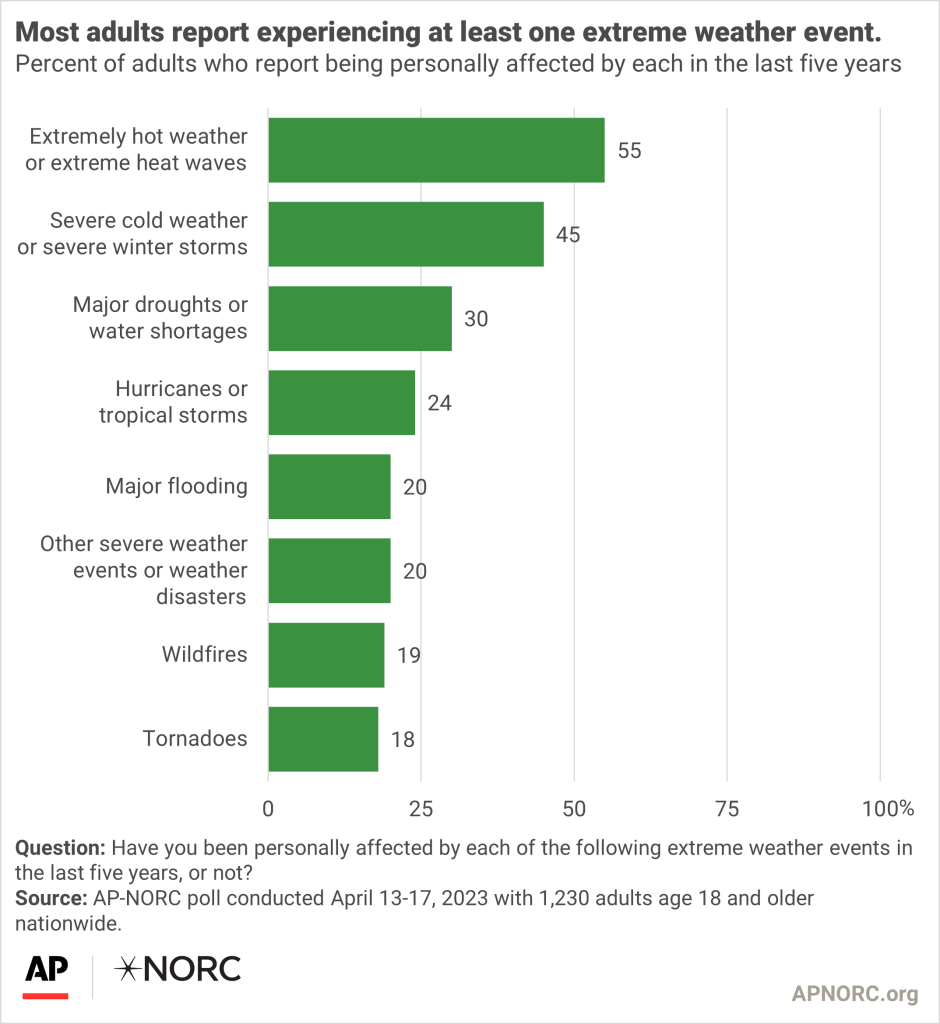
When it comes to influencing their views of climate change, people say recent extreme weather events and scientists have the most impact. However, Democrats tend to be more influenced by each compared to Republicans.
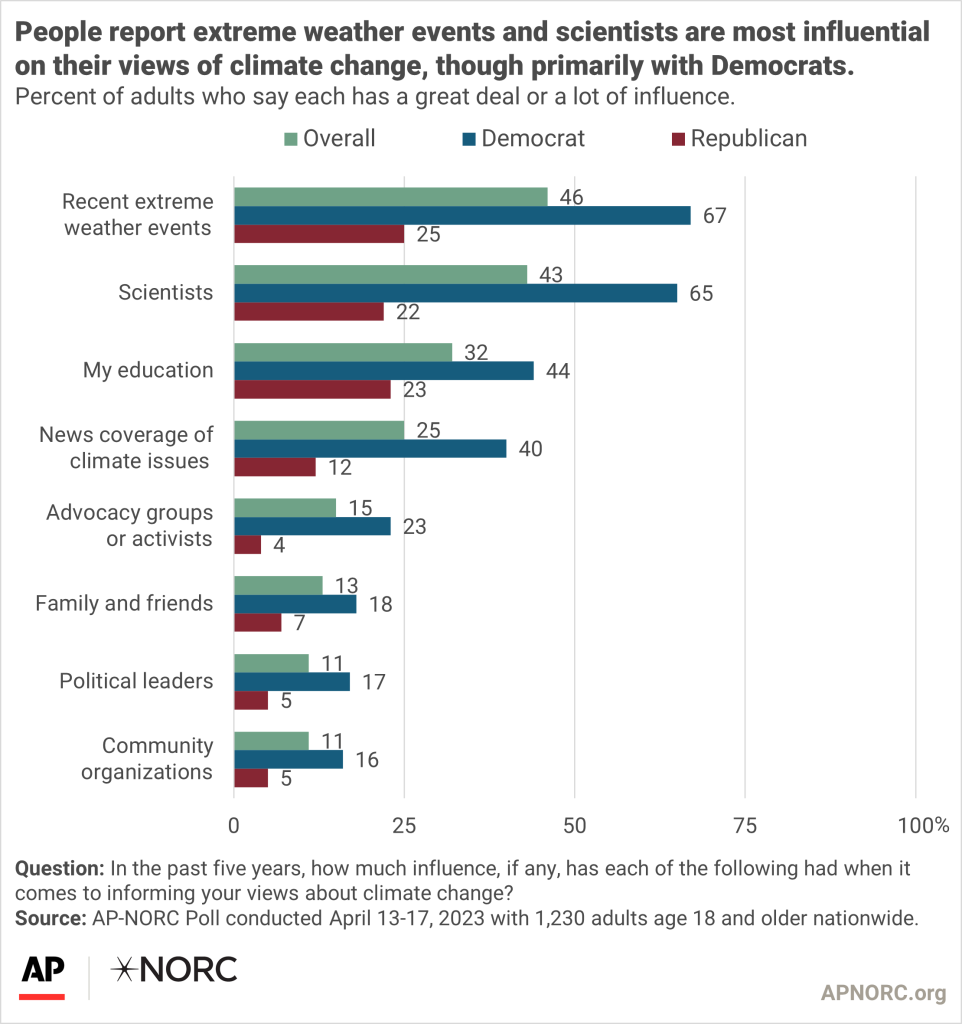
The public is most likely to talk about climate change with their friends or children. Democrats are more likely to discuss climate change at least sometimes compared to Republicans.
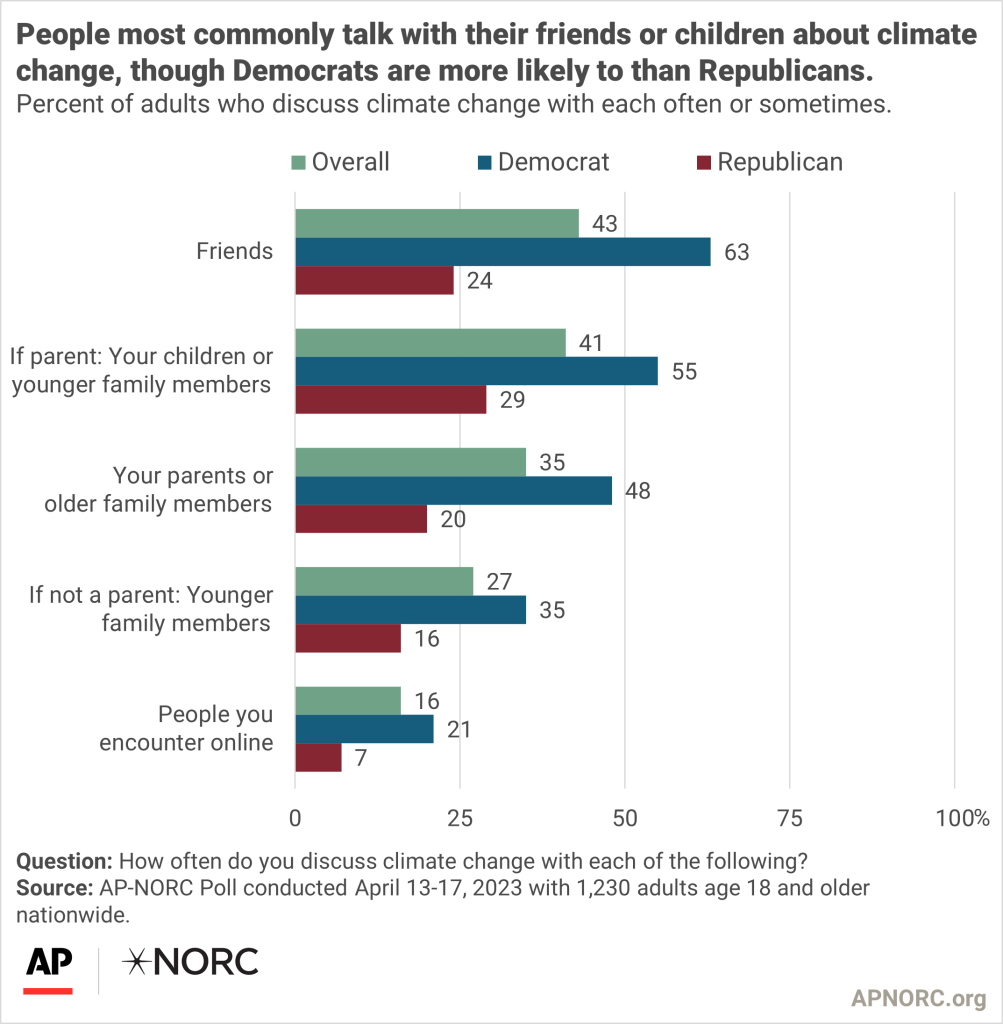
Among those who have discussed climate change with others, most tend to agree or equally agree or disagree, particularly with friends, children, and younger family members. Democrats tend to agree more than Republicans when discussing climate change with friends (64% vs. 39%), parents or older family members (54% vs. 38%), children (68% vs. 39%), and younger family members (56% vs. 33%).
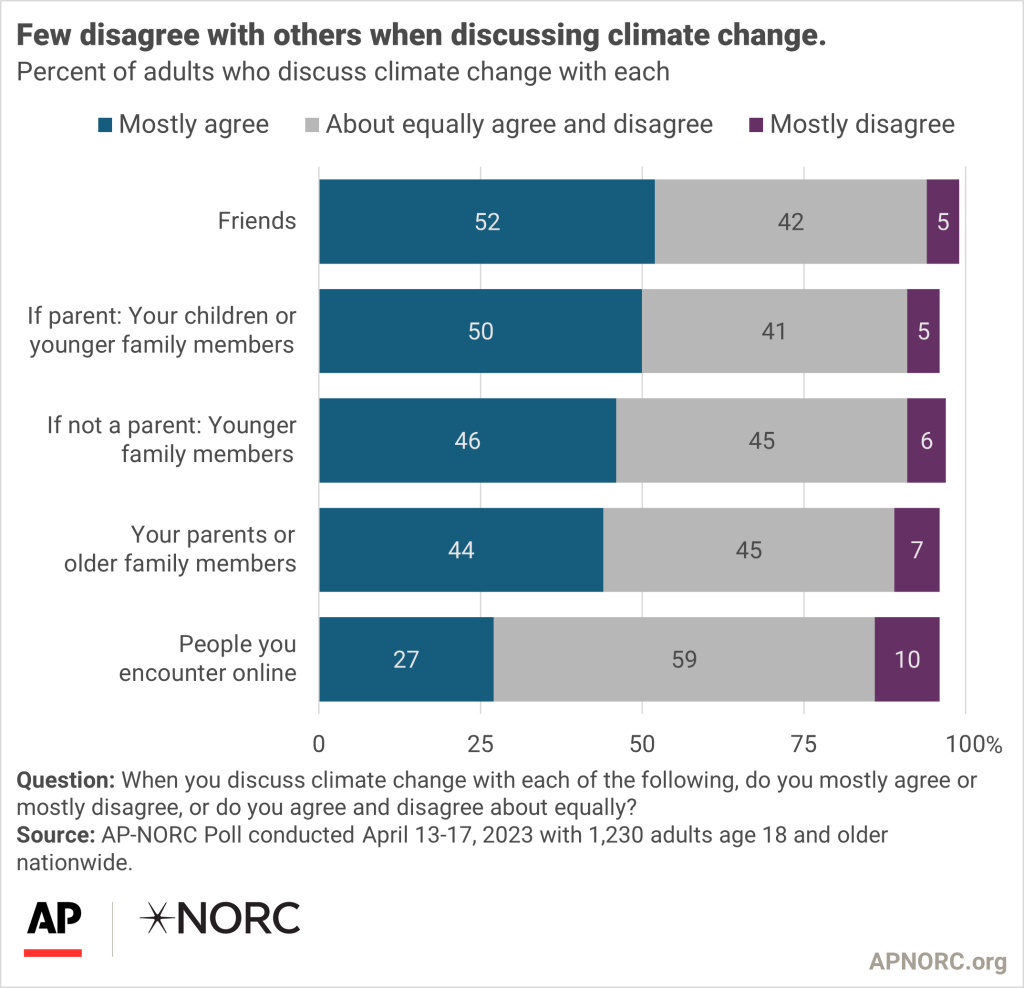
Over half of the public reports learning new information as a result of conversations about climate change, and nearly half taught someone else new information. Changing opinions about climate change is less common, with less than a quarter reporting that their opinion or someone else’s opinion changed.
Democrats are more likely than Republicans to say that they learned more information, taught someone else new information, or that they changed someone else’s opinion on the issue. Adults under 30 are also more likely to say they changed someone else’s opinion about climate change.
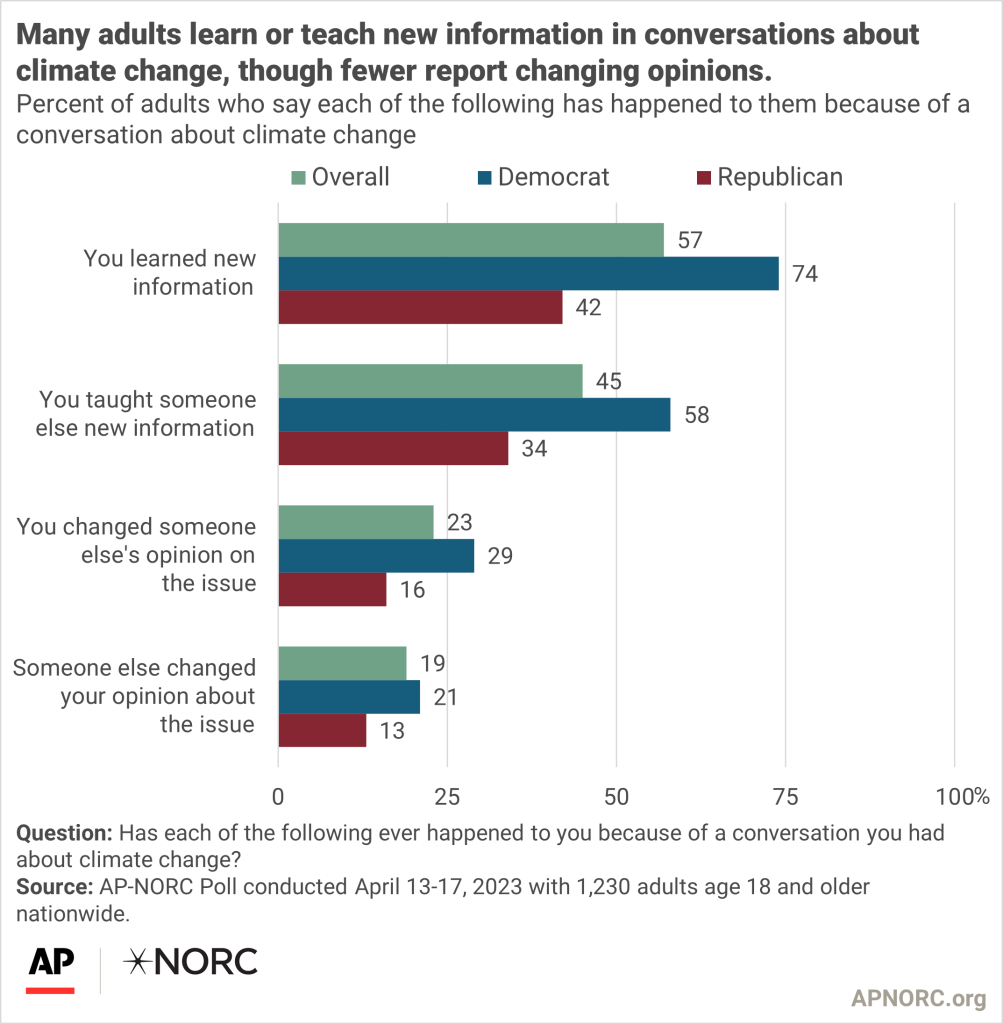
When it comes to who should be responsible for teaching climate change, the public places more responsibility on colleges and high schools than lower grades. Democrats are more likely than Republicans to believe colleges (86% vs. 64%), high schools (87% vs. 61%), middle schools (82% vs. 50%), and elementary schools (74% vs. 43%) have a lot or some responsibility for teaching about climate change.
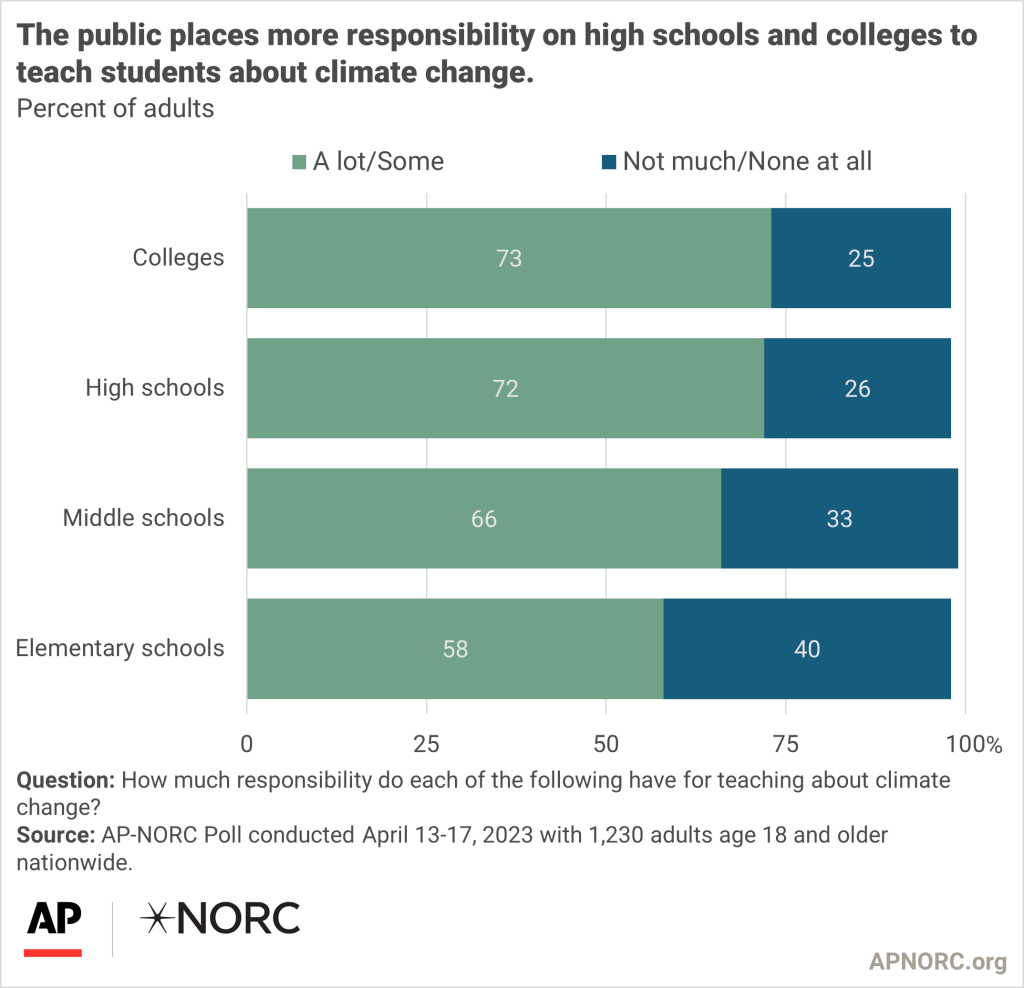
In the last year, few have contacted elected representatives (8%), volunteered with or donated to environmental organizations (11%), or followed environmental organizations on social media (15%). Democrats are more likely than Republicans to have taken any of these actions. Half have spoken with friends and family about climate change. Whether or not respondents have taken action on any of these fronts remains largely unchanged from a June 2022 AP-NORC poll.
People feel a mix of emotions when discussing climate change. About half do feel some degree of hope, but half also feel indifference, anger, and getting overwhelmed.
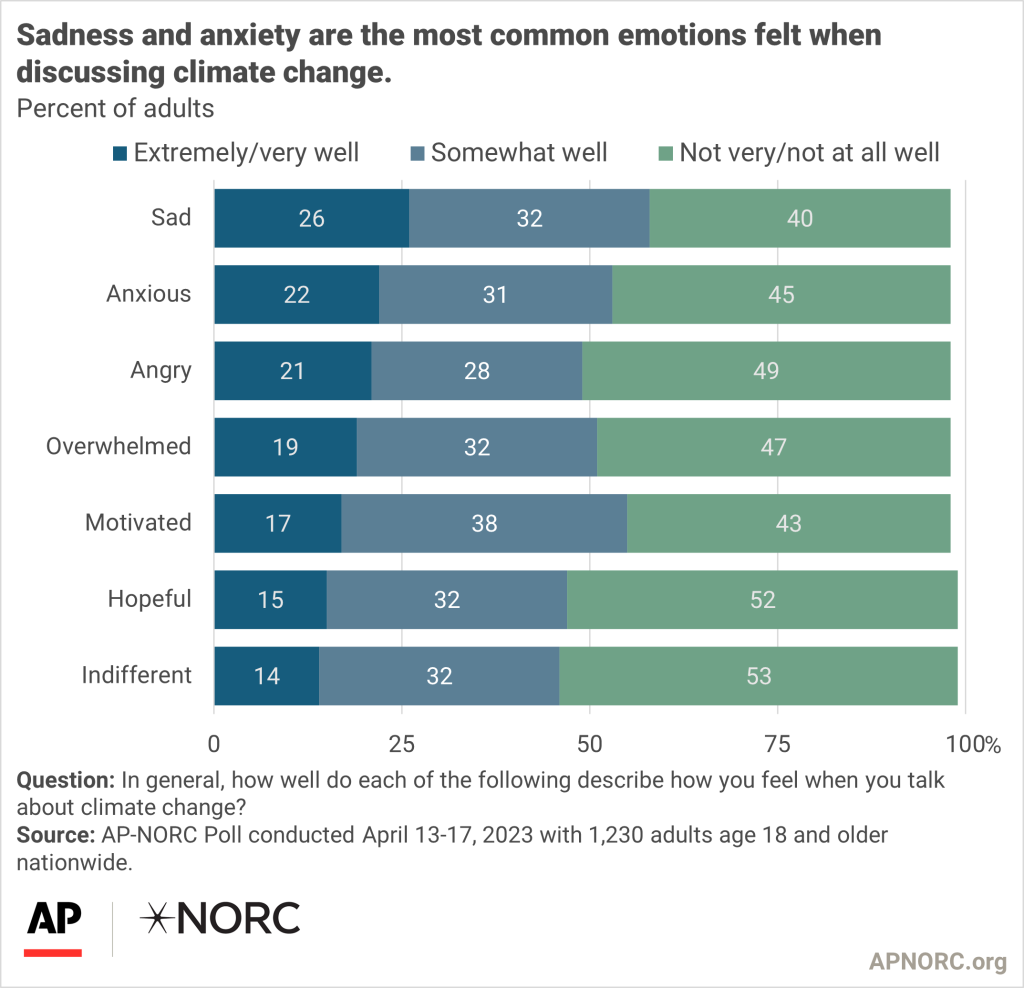
The nationwide poll was conducted April 13-17, 2023, using the AmeriSpeak® Panel, the probability-based panel of NORC at the University of Chicago. Online and telephone interviews using landlines and cell phones were conducted with 1,230 adults. The margin of sampling error is +/- 3.9 percentage points.
- Suggested Citation: AP-NORC Center for Public Affairs Research. (April 2023). “Attitudes toward climate change continue to be divisive.” https://apnorc.org/projects/attitudes-toward-climate-change-continue-to-be-divisive/




